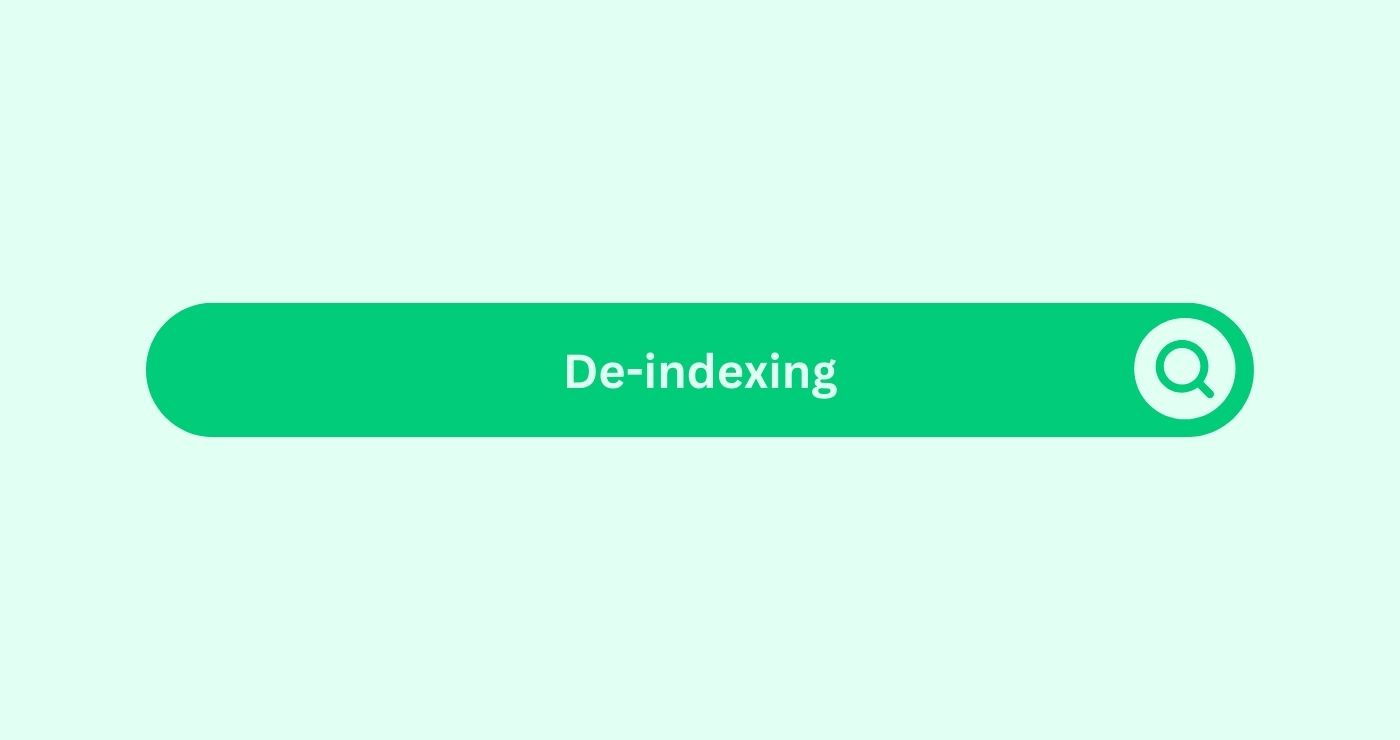What is de-indexing in the context of SEO?
De-indexing refers to removing web pages from a search engine’s index, making them inaccessible in search results.
Definition
In SEO, de-indexing is the process by which search engines remove web pages from their index, renderingDefinition Rendering, in the context of SEO. refers to the p... More them invisible in search results. This can occur due to manual actions by search engine operators or algorithmic penalties.
Example of how De-indexing can be used
If a website contains low-quality or duplicate contentDefinition Duplicate content in the SEO space refers to iden... More that violates search engine guidelines, webmasters may choose to de-index those pages to avoid penalties and maintain the overall health of their site.
Key Takeaways
- Penalty Avoidance: De-indexing is often used to prevent penalties from search engines for violating their quality guidelines.
- Content Cleanup: It helps in removing low-quality or duplicate contentDefinition Duplicate content in the SEO space refers to iden... More from search engine indexes to improve overall site quality.
- Algorithmic Actions: De-indexing can occur automatically due to search engine algorithms detecting violations.
- Manual Actions: In some cases, webmasters may request the de-indexing of specific pages through search engine webmaster toolsDefinition Webmaster Tools, also known as Search Console, is... More.
- Recovery Process: Websites can work on fixing issues leading to de-indexing and submit reconsideration requests to restore their visibility in search results.
FAQs for De-indexing
What causes the de-indexing of web pages?
De-indexing can occur due to violations of search engine guidelines, such as thin contentDefinition Thin content refers to web pages that lack substa... More, duplicate contentDefinition Duplicate content in the SEO space refers to iden... More, or spammy tacticsDefinition Spammy Tactics in the SEO realm refer to deceptiv... More.
Can de-indexed pages be re-indexed?
Yes, webmasters can fix issues leading to de-indexing and request re-indexing through search engine webmaster toolsDefinition Webmaster Tools, also known as Search Console, is... More.
How long does it take for de-indexed pages to be re-indexed?
The time taken for re-indexing depends on factors like the severity of the violation and the actions taken to rectify it. It may vary from days to weeks.
Does de-indexing affect the entire website?
De-indexing typically affects specific pages rather than the entire website, although severe violations may impact the entire site's visibility.
Can competitors de-index my website's pages?
While it's technically possible for competitors to report violations leading to de-indexing, search engines assess the validity of such reports before taking action.
What is the difference between de-indexing and penalisation?
De-indexing refers to the removal of pages from search engine indexes, while penalisation involves receiving a ranking penalty for violating guidelines.
How can I prevent de-indexing of my website's pages?
Focus on creating high-quality, original content, adhere to search engine guidelines, and regularly monitor your site for any issues that may leadWhat is Lead? Definition A Lead in the context of SEO refers... More to de-indexing.
Is there a limit to the number of pages that can be de-indexed from a website?
There is no specific limit, but search engines may de-index pages if they detect violations regardless of the number.
Can de-indexing affect website traffic?
Yes, de-indexing can significantly reduce website trafficDefinition In the context of SEO (Search Engine Optimisation... More as affected pages become inaccessible in search results.
What should I do if my website's pages are de-indexed?
Identify and address the issues causing de-indexing, such as thin or duplicate contentDefinition Duplicate content in the SEO space refers to iden... More, and submit reconsideration requests to search engines after rectifying them.




